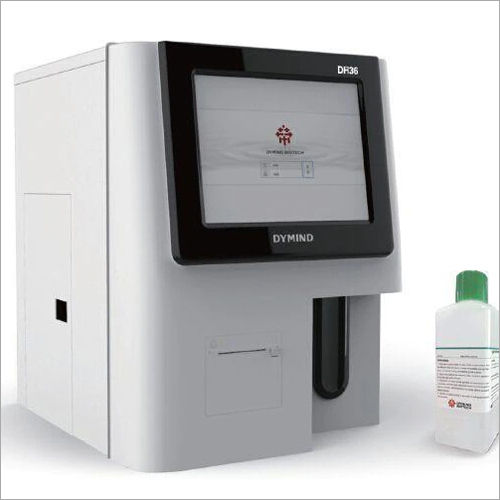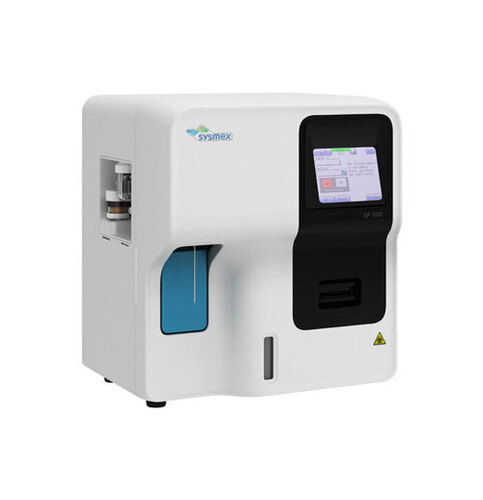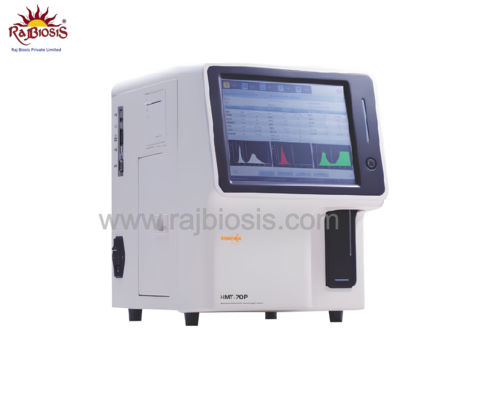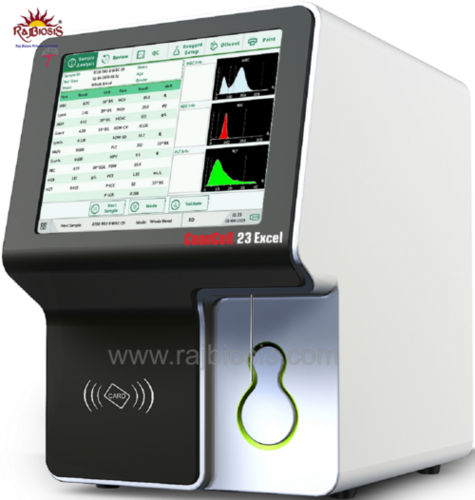 08045816368
08045816368

Hematology Analyzer
Product Details:
Hematology Analyzer Price And Quantity
- 1 Piece
- 400000 INR/Piece
Product Description
Hematology Analyzer is used to count the number of different types of red and white blood cells and blood platelets. In order to design this analyzer, our experts use advanced machines and utilize quality tested materials procured from the authentic vendors. Moreover, we offer this machine in qualitative packaging to avoid damage during transportation.
Hematology Analyzer Specifications:
1. Air pressure: Up to 106 kPa
2. Operation Mode: Fully Automatic
3. Automation: Fully Automatic
4. Throughput: 60 samples per hour
5. Number Of Parameters: LYM
6. Frequency: 50/60 Hz
7. Instrument Type: Hematology Analyser
8. Model Name/Number: Dymind DF50
9. Operating Voltage: 240 V
10. Weight: 28 kg
11. User Input: Touch
12. Dimension: 360mm(L) x 470mm(W) x 430mm(H)
13. Humidity: 85%
14. Temperature: 10 Degree Centigrade - 30 Degree Centigrade
Hematology Analyzer FAQ:
Q. What is a hematology analyzer?
Ans: A hematology analyzer is a medical instrument designed to analyze blood samples. It provides information about the cellular components of blood, such as red blood cells, white blood cells, and platelets.
Q. How does a hematology analyzer work?
Ans: Hematology analyzers use a combination of technologies, including impedance, flow cytometry, and light scatter, to count and characterize blood cells. These technologies help in determining cell counts, cell size, and cell type.
Q. What parameters can a hematology analyzer measure?
Ans: Common parameters include complete blood count (CBC), which includes measurements such as red blood cell count (RBC), white blood cell count (WBC), hemoglobin concentration, hematocrit, platelet count, and differential white blood cell count.
Q. Why is a complete blood count (CBC) important?
Ans: A CBC provides valuable information about the overall health of a patient and can help in diagnosing various medical conditions such as anemia, infections, clotting disorders, and leukemia.
Q. What are the advantages of using a hematology analyzer?
Ans: Hematology analyzers offer fast and accurate results, allowing healthcare professionals to quickly assess a patient's blood profile. They are also efficient in processing a large number of samples in a short period.
Q. How is the accuracy of a hematology analyzer ensured?
Ans: Regular calibration, maintenance, and quality control procedures are essential to ensure the accuracy and reliability of hematology analyzers. Additionally, adherence to manufacturer guidelines and proficiency testing contribute to maintaining high standards.
Q. Can hematology analyzers identify specific blood disorders?
Ans: While hematology analyzers provide important information about blood cell counts and characteristics, the identification of specific blood disorders often requires additional tests and clinical correlation.
Q. Are there different types of hematology analyzers?
Ans: Yes, there are various types of hematology analyzers, ranging from basic models suitable for smaller laboratories to advanced analyzers with more features for larger healthcare facilities. Some analyzers are designed for specific tasks, such as research or specialized testing.
Q. What sample types can be analyzed by hematology analyzers?
Ans: Hematology analyzers typically analyze whole blood samples collected in tubes containing an anticoagulant. Some analyzers can handle capillary blood or bone marrow samples as well.
Q. How often should hematology analyzers be serviced or calibrated?
Ans: The frequency of service and calibration depends on the analyzer's usage and the manufacturer's recommendations. Regular maintenance and calibration are crucial to ensure accurate and reliable results.






 Send Inquiry
Send Inquiry Send SMS
Send SMS Call Me Free
Call Me Free